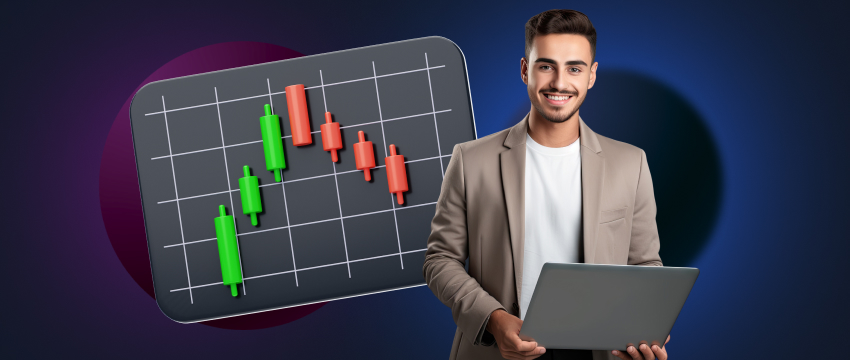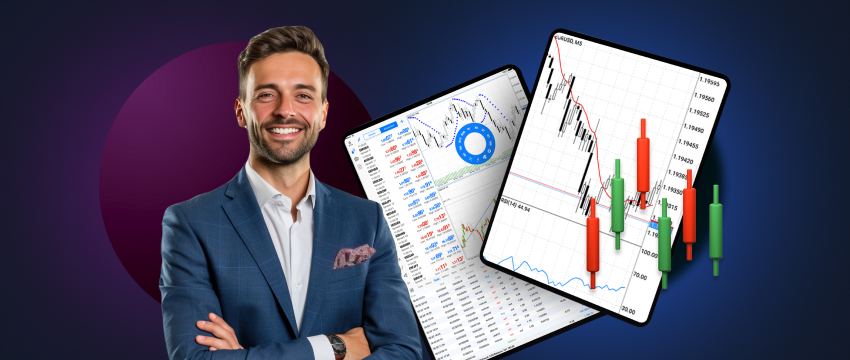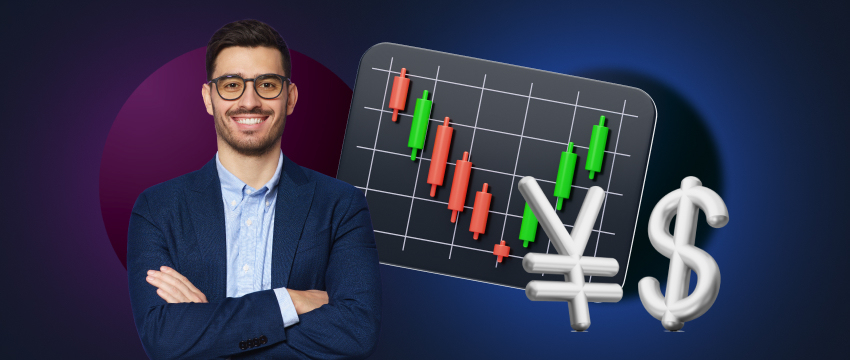A Contract for Difference (CFD) is a speculative financial instrument that enables a trader to profit from the price movement of the CFD underlying asset without taking ownership of it. Contracts for Difference have become a popular way for traders to gain access to a vast range of assets like stocks, currencies, commodities, metals, indices, and futures, facilitating portfolio diversification. But while CFDs offer potential for significant returns, there are considerable risks associated with this form of trading, oftentimes leading to substantial capital losses. Let’s discuss what some of these risks are.
CFDs are highly leveraged
Contracts for Difference are typically traded using leverage. This allows a trader to manage a larger position with a relatively small amount of capital. But while leverage may increase the potential for making a considerable profit, it also amplifies losses exponentially. This becomes particularly evident in a volatile market, when adverse price movements are often sudden and unanticipated, leading to financial losses. Throw in leverage and all of a sudden, those losses become vastly bigger. To properly manage leverage, one must have a proper understanding of the risks involved in CFD trading.
Volatile markets
As we’ve already mentioned, market volatility has a huge impact on CFD trading outcomes. Sudden price swings, the complexity of the financial markets, and the fast-paced nature of trading can make it challenging for beginner traders to keep up. Expanding one’s scope of knowledge about CFDs as well as the use of leverage will boost skills and expertise, ultimately mitigating emotional or uninformed decision-making.
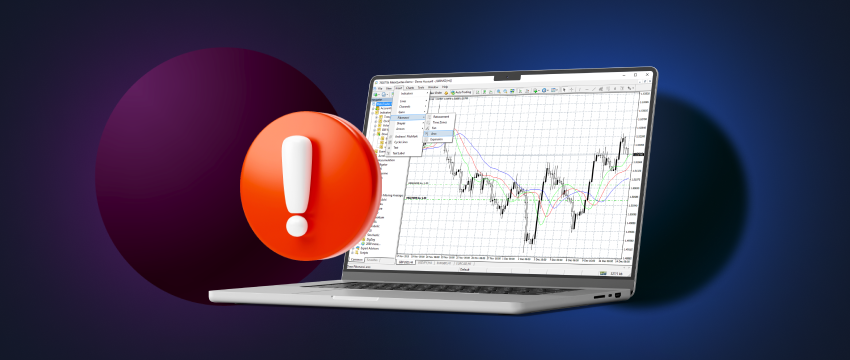
Managing counterparty risk
In the case of CFDs, traders do not take ownership of the underlying asset. Rather, the trader enters into a contract with a CFD broker allowing him or her to speculate on the price movements of the asset. A consequence of this arrangement is that the trader is exposed to counterparty risk. What does this mean though? Well, if the broker (the counterparty) experiences any sort of financial difficulties or enters into bankruptcy, the trader may find it difficult to recover their funds.
Trading psychology
Managing one’s emotions when trading can be incredibly challenging, especially if you lack experience and knowledge. Combine this with trades having to be executed in minutes, if not seconds, as well as the increased potential for loss that comes with CFD trading, well, one could argue that you have the perfect recipe for disaster. Stress levels rise, leading to impulsive trading, cloudy judgment, and poor decision-making. Other emotions like greed or fear of missing out may also lead to overtrading, resulting in less-than-stellar outcomes.
Managing psychological stress
So what can one do to manage their psychology better to become more successful in trading? Here are some tips:
- Identify, acknowledge, and understand your feelings. Recognize when a particular emotion is rearing its ugly head so that you can better manage it. Ignorance is not bliss in the world of trading. Instead, be mindful of what you are feeling.
- Without a doubt, have a proper trading plan in place. An effective trading plan will help you focus better, thereby mitigating the risk of feelings influencing your trading decisions. Ensure the plan aligns with your goals, risk tolerance, and budget. Failing to plan is planning to fail has never been truer.
- Keep a trading journal. Document your trades and the reasons behind those trades. With time, you’ll build a great data resource to look back on and identify patterns in your behavior and judgment.
- Take much-needed breaks to ensure you don’t burn out. Step away from the screen and rest. In this way, you’ll regain focus to make rational decisions.
- Engage in ongoing learning to ensure you stay ahead of all trading trends and advances in this domain. Make use of the free educational resources you find online to widen your scope of knowledge, boost your capabilities, and become more of an expert CFD trader. Look to reputable blogs, e-books, guides, podcasts, seminars, videos, etc, and gather as much information as you can about CFD trading. By arming yourself with professional insights, you’ll be less influenced by feelings and more driven by knowledge.
Controlling exposure to risk
It’s pretty clear what the challenges are when it comes to CFD trading. The risks are pretty evident and managing them effectively is critical. There are several ways to control one’s exposure to these risks, let’s explore what these are.
1. Understand the markets
Different factors impact different markets. In the context of CFD trading, this requires a robust understanding of what those factors to make speculative trading decisions that will earn you gains. Factors include central bank policy changes, economic announcements, inflation, interest rates, employment rates, market sentiment, investor sentiment, geopolitical uncertainties, and more. Using an Economic Calendar may be useful in this instance to be able to track global economic news events and indicators like Gross Domestic Product (GDP), Industrial Production Index (IPI) (US), Consumer Price Indices (PMIs), and others.
2. Learn technical and fundamental analysis
Having a good understanding of technical and fundamental analysis will help you make informed decisions. In terms of technical analysis, this includes learning how to analyze price charts, spotting specific patterns in the charts, identifying and following trends (bullish or bearish), using indicators, etc. Fundamental analysis on the other hand examines the intrinsic value of an asset. It looks at related economic, financial, and other qualitative and quantitative data. Traders or investors will typically study financial statements, earnings reports, dividend payouts, and competitive positioning, among others.
4. Be cognisant of open positions
Be vigilant about monitoring open positions to ensure that you can react as quickly as needed to market movements. Furthermore, ensure that the size of your positions is based on your risk tolerance and the size of your trading account. Ensure you don’t overleverage, as while it may magnify your wins, it can also amplify the losses.

5. Use risk management tools
It is incredibly important to use risk management tools to safeguard your capital when trading highly leveraged financial instruments like CFDs. This includes stop-loss and take-profit orders, trailing stops, guaranteed stops, etc. These orders are based on pre-defined rules and are triggered when an asset reaches a particular price. They are designed to limit loss on a particular position held by a trader.
6. Sign up for a demo trading account
Making use of a demo trading account is helpful regardless of whether you are a beginner trader or one with years of experience. It offers the opportunity for traders at all levels to refine their trading skills in a risk-free, simulated trading environment. Using virtual funds, beginner traders can gain the necessary CFD trading practice, while expert traders can test out the most complex trading strategies, without the fear of losing one’s money.
In summary, while one might be inclined to avoid CFDs based on the risks that they incur, it’s clear that there are ways to mitigate those risks. Making a profit is not guaranteed however, and the chances of losing capital are incredibly high so make sure you aren’t putting into jeopardy money that has been set aside for things like your pension, a university fund, medical insurance, a housing mortgage, a car lease, etc.
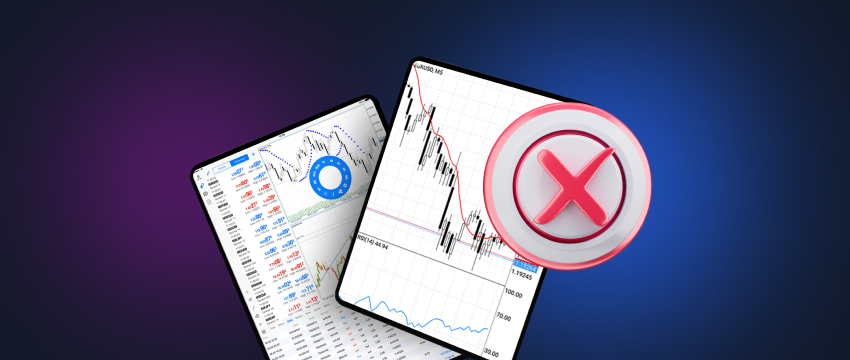
Why trade CFDs with T4Trade?
Used by traders worldwide, T4Trade has quickly become a powerful broker of choice. There are several reasons that traders opt to become T4Trade traders, regardless of expertise. This includes an exceptional trading experience, high-quality service delivery, and multiple trading accounts to choose from, tailored to the needs of all types of traders. Additionally, T4Trade traders can also enjoy flexible leverage, fast execution of trades, tight spreads, and quick deposits and withdrawals.
Furthermore, the broker’s multilingual client support team is available 24/5 to assist traders with a wide range of queries and to provide expert support when required. The team can be reached via popular communication channels like live chat and email. Complimenting this outstanding service offering is T4Trade’s Academy which offers a wide variety of useful learning resources to hone your skills and pool of knowledge.
Disclaimer: This material is for general informational and educational purposes only and should not be considered investment advice or an investment recommendation. T4Trade is not responsible for any data provided by third parties referenced or hyperlinked in this communication.

